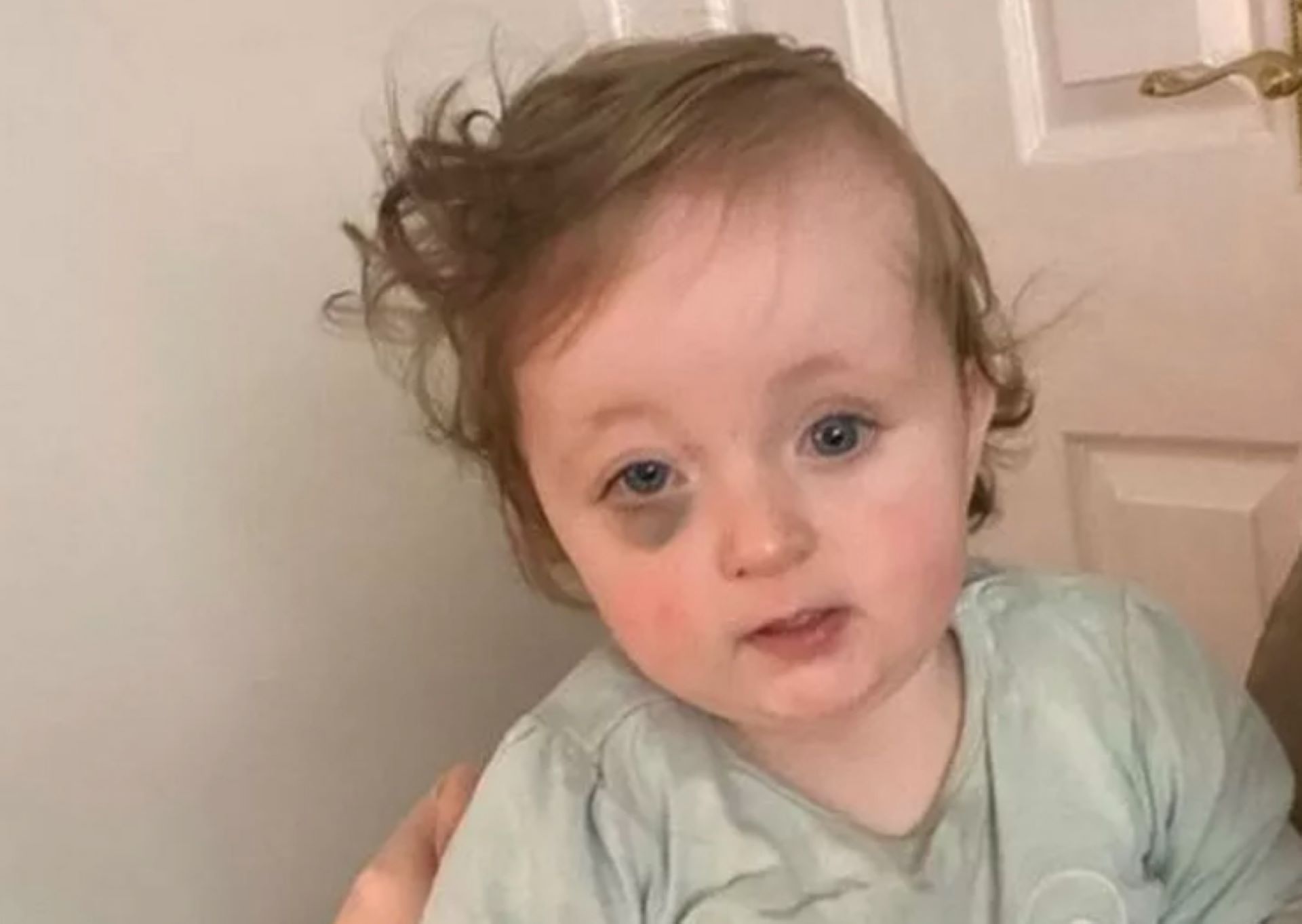A MUM has opened up about how an innocent-looking bruise on her baby girl’s eye turned out to be a devastating disease.
Harper Walker, from Salford, Greater Manchester, was just 13 months old when her parents noticed the small bruise under her right eye in February.
Jenny Huddart, 38, and dad Adam Walker, 36, noticed the mark appeared to have become a black eye after just two weeks and took her to the GP after a month.
After several visits without a diagnosis, the situation continued to get worse and Harper was eventually rushed to hospital, where she was referred to a specialist eye team.
Scans showed it was a stage four, high-risk neuroblastoma, a cancer that develops from immature nerve cells found in several areas of the body.
Jenny said: “Honestly, to begin with we were just in total shock — it didn't hit us fully at first.
Read more on cancer
Parents of little girl with rare cancer told medics ‘can’t’ treat her illness
Warning to pregnant women as common condition ‘boosts child’s cancer risk’
“Then when it did, it was like the world had stopped. I think we both still feel like we are walking around in a daze at times.”
Around 100 children are diagnosed with neuroblastoma in the UK every year, with under-fives mostly affected.
Tumours develop from specialised nerve cells called neuroblasts that are left behind from baby’s development in the womb.
The disease usually occurs in the kidneys or spinal cord and can spread to other organs, including the lymph nodes, liver and skin.
Most read in Health

Outbreak fears as man, 28, 'critical' with coronavirus with 35% mortality rate

Breakthrough for thousands with 'silent killer' disease

From a weak grip to finger length – what your HANDS reveal about your health

Urgent measles warning as cases of disease surge – the signs to watch out for
Symptoms include a lump in the tummy that can make it swell, causing discomfort or pain, as well as blue black coloured skin it has spread.
Children can also suffer numbness, weakness, loss of movement in the lower part of the body, breathlessness and difficulty breathing.
The doctors told Jenny and Adam that Harper’s cancer originated in her adrenal gland on her kidney and was now present in her limbs, ribs, hips, skull and bone marrow.
Jenny said: “In general her health has always been fine, she’s usually happy, smiley, and bounces back from bugs relatively quickly.
“We went to see the doctor as soon as we noticed it, but the GP wasn't concerned. We re-visited again a couple weeks later, but she asked for us to return again in two weeks.”
Her diagnosis came before a scheduled appointment however, after the parents rushed her to A&E on the advice of 111.
After the disease was spotted at Royal Manchester Children's Hospital, Harper, who has three brothers and a sister, immediately started treatment, including chemotherapy.
She will continue the chemo until later this month, before having surgery to remove the tumour from her kidney.
After this, she will have high dose chemotherapy, having her stem cells removed and frozen.
Jenny said: “Once the intensive chemotherapy is complete, Harper will have her stem cells returned to help her start to grow new, healthy blood cells.”
After that, she will have radiotherapy to target the original site of the cancer — her kidney — to try and prevent it from returning.
Finally, she will undergo immunotherapy to spot and destroy cancer cells.
What are the symptoms of neuroblastoma?
Symptoms can include:
- a swollen, painful tummy, sometimes with constipation and difficulty peeing
- breathlessness and difficulty swallowing
- a lump in the neck
- blueish lumps in the skin and bruising, particularly around the eyes
- weakness in the legs and an unsteady walk, with numbness in the lower body, constipation and difficulty peeing
- fatigue, loss of energy, pale skin, loss of appetite and weight loss
- bone pain, a limp and general irritability
- rarely, jerky eye and muscle movements




